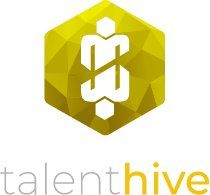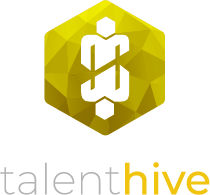How to Future Proof Your Career in an Evolving Employment Market
Marc Denholm • January 19, 2015
In 2002, Kodak was one of the world’s most valuable brands. They had the film processing business sewn up, employed thousands of people, made billions of dollars in profit and were second only to Sony in terms of digital camera sales. Kodak’s lens was pointed firmly at the future.
Fast forward to January 2012 and Kodak was filing for bankruptcy in New York. Weeks later on the West Coast, Facebook bought Instagram for a billion dollars, making multi-millionaires of just 13 employees. The product they developed was available to every person with a phone. And it was free.
What happened to the photofinishing industry in ten years serves as a cautionary tale against complacency among individual workers. If a corporate powerhouse like Kodak can be run out of town by a dozen geeks from Stanford, the rest of us had better stay on our game if we want to grow our careers.
A 2014 LinkedIn study – which gathered data from more than 2,600 employers around the world – illustrates the importance of adaptability in a volatile jobs market. The employers who reported the highest levels of productivity were those whose workforce was the most willing to adapt. The Netherlands, with its multilingual workforce and international portfolio, was rated the most adaptable country, while the more isolationist economic policies and lack of sector diversity in China left them trailing.
So what can you do to remain valuable in your industry? Let’s look at three key areas to help you future proof your career.
Know Your Industry Inside Out
Of all the words that strike terror in the hearts of workers, ‘automation’ is right up there with ‘cutbacks’ and ‘auditor’. Some reports estimate that close to 50% of current jobs will be automated within two decades. Keep informed of creeping computerization in your industry and you can identify potential flaws or learn new skills.
It’s possible you won’t like what you find out, so be prepared to change careers if you feel your industry’s days are numbered. Translators the world over must be quaking in their boots at the buzz surrounding Skype’s real-time translating software. A well-compensated career path may soon be consigned to history. But the technology was a long time coming. Only the chronically myopic or stubborn could’ve failed to see which way the wind was blowing.
Gain insight and foresight will follow. It’s not enough to learn the machinations of your industry in preparation for your interview. Stay abreast of the latest developments and you can put your career on the right trajectory.
Learn Market Driven Skills
It’s not enough to predict the curve – you need to stay ahead of it too. That means determining which skills are valuable right now and whether they will continue to be valuable in the future. These vary from industry to industry, but if there’s one catch-all skill that will be useful to practically everyone for decades to come, it’s coding. Even if your current role doesn’t require it, learning code gives you a fresh perspective on problem solving and provides insight into the fundamentals of the languages that drive our world. Learning html (at the least) is a good way to make technology friend not foe – and it’s a solid gold star on any CV.
With a huge range of tutorials and educational material information available for free online, software development is the most accessible skill to attain, but it’s not the only game in town. Other future-proofed skills include essentials like health and utilities, so be sure to focus on an area you get some job satisfaction from.
The Humans Aren’t Dead
For all the talk of the Digital Age encroaching on our hard-won skillsets, computers can’t touch our aptitude for creative problem solving. The most powerful computer on earth is nothing without a human operator (as evidenced by centaurs, the chess-playing human-computer combinations that perform better than either man or machine alone). The twin forces of computer processing power and human intuition are just as valuable in the job market as they are in the world of chess.
Computers represent ‘the extended mind’; they are tools to help store and process larger volumes of data than a single brain could ever handle. Mastering as many computer skills as possible will increase your employability. The more IT skills you have, the better you’ll be at automating certain tasks and dedicating the time you free up to the one task computers can’t perform: generating really creative ideas.

The economic conditions are influencing the contract employment landscape in several ways. Here are some of the trends Talent Hive has seen recently. Demand Shifts NZ firms facing economic headwinds are hesitant to commit to FTE hires but with projects and deadlines still to deliver on, there is likely to be more reliance on temporary and contract solutions to manage workloads in the coming months. Available Talent Although not widespread, layoffs and restructures in the Tech sector could lead to a larger pool of candidates available for temporary and contract work, and Talent Hive has seen an increase in enquiries from people looking to understand how they might set themselves up for contract engagements. This has the potential to increase competition but could also provide businesses with access to qualified talent on a flexible basis. Tech Sector Specifics We are seeing an increase in demand for contract staff recently, particularly Software Developers, Integration and Solution Architects, and Business Analysts. This upswing in demand is reflected in the recent Seek job listings data. There are 207 Contract IT/Tech roles advertised on Seek today and 23% of those contract roles have been listed in the last 7 days. 52 of the 207 contract roles advertised are for Software Eng/Developers with 30 listed ads for Contract BA’s. Wage Control In Stats NZ’s latest update, New Zealand's salary rates actually increased by 4.1 percent in the year to March. That labour cost growth slightly outstripped inflation, which was sitting at 4 percent. Contract hourly rates in the Technology sector have stabilised in recent months as hiring demand has decreased and we may even see hourly rates come back a little, particularly for role types where there is an oversupply of contract talent. Hybrid Work Trend One trend we are certainly seeing in the contract market are fewer remote work opportunities. Increasingly there is a requirement for contractors to have the ability to work some of the week at a designated office and this is restricting the opportunities contractors are able to go for. Full remote work options aren’t completely gone but they are significantly reduced. Contract candidates must be open to in-office work for at least some portion of their engagement. Overall, the current climate creates a complex landscape for both businesses seeking talent and professionals exploring temporary and contract opportunities. Success for Contractors will depend on adaptability, flexibility around rates, and contract length. Talent Hive's Value Talent Hive's understanding of the current market dynamics, along with our strong network of skilled professionals, positions us uniquely to support both clients and candidates Addressing Uncertainty: For businesses navigating hiring uncertainty, Talent Hive offers flexible staffing solutions. We have access to contract talent that are ready to fill immediate skill gaps and help organisations manage fluctuating workloads. Beyond Just Tech Skills: We understand that finding the right technical expertise is only half the battle. Talent Hive's strong connections within the contractor talent pool allow us to identify professionals who are not only technically capable but also a strong cultural and organisational fit for our clients. This approach ensures smoother onboarding and a positive impact for both the contractor and the employer. We would like to share some of the contractors we’re working with at the moment. Click below to view some of the great IT talent we're working with to find roles at the moment.




